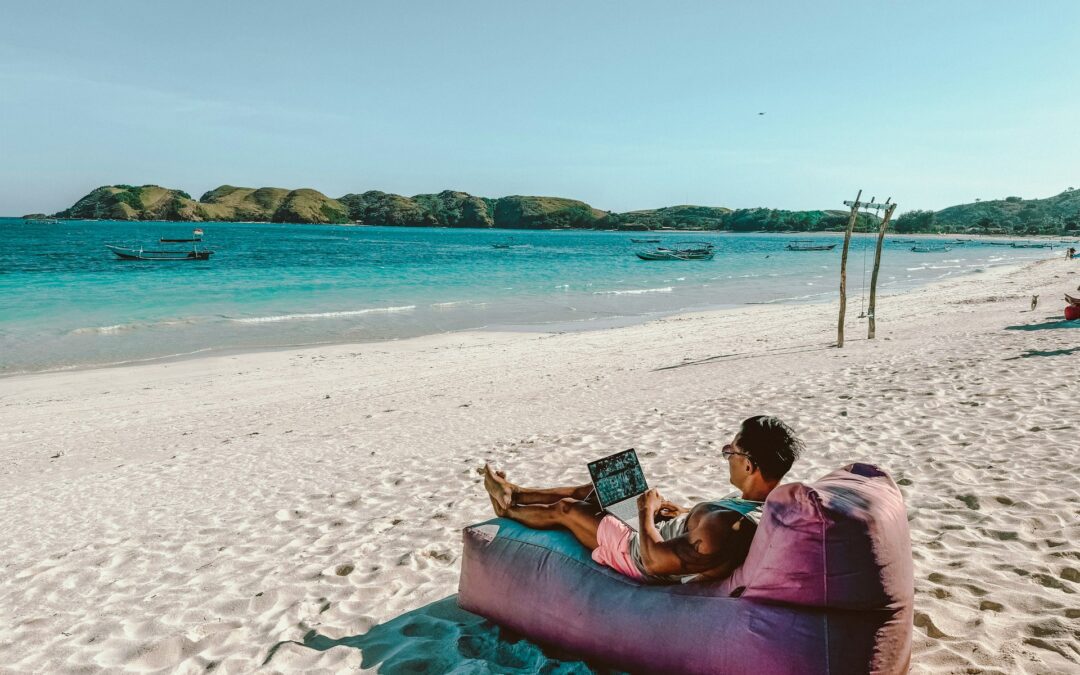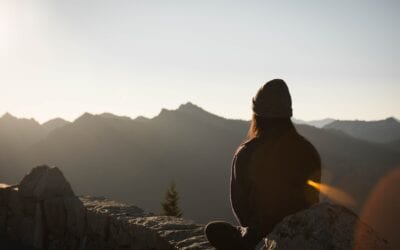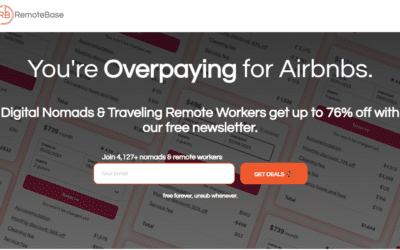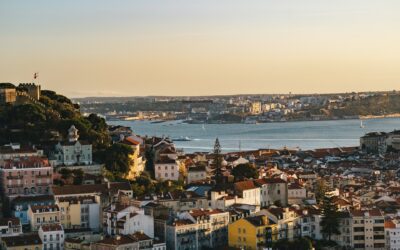|
|
Living the digital nomad lifestyle in the U.S. is a dream for many, working from vibrant cities, scenic national parks, or charming coastal towns. But the constant travel, fluctuating schedules, and diverse environments can create unique wellness challenges.
The good news? With a few proactive steps, you can stay healthy and energized no matter where you roam in the U.S.
If you want this lifestyle to be exciting and sustainable, it’s time to get proactive about your wellness. Here are 5 key hacks every nomad should know, beyond the usual “sleep well and exercise” advice.
1. Be Water Wise & Hydrate Safely Wherever You Go
It’s easy to forget how important water quality is when you’re on the move. Airplane cabins, with 10-20% humidity, can quickly dehydrate you, but what about the tap water once you land? Even in the U.S., water safety varies by location.
Take California, for example. A gorgeous state where you can live the digital nomad dream, surfing in the morning and coworking by noon. However, PFAS chemicals (“forever chemicals”) have been detected in water systems serving up to 25.4 million Californians. According to TorHoerman Law, these contaminants have been linked to hormonal disruption and immune issues.
You might’ve heard about them in the nationwide AFFF foam lawsuit. That firefighting foam? It’s packed with PFAS. And it’s been blamed for polluting water bodies across the U.S. Legal battles are still raging.
No matter where you are, always stay aware of water quality. A portable water filter or a top-notch filtered bottle can be a game-changer on your travels.
2. Mind Your Altitude and Air Quality
Not all destinations are created equal when it comes to air. High-altitude gems like Colorado and Utah may offer jaw-dropping views, but can leave you breathless and fatigued due to thinner air.
This condition is known by several names: acute mountain sickness, hypobaropathy, puna, or soroche. It occurs when your body has trouble adapting to the reduced oxygen available at higher altitudes. For most, symptoms don’t typically kick in until reaching 8,000 feet or more, but it can vary widely from person to person.
On top of altitude challenges, it’s worth noting that nearly 40% of Americans live in areas with unhealthy air pollution levels. The country is also reversing progress on improving air quality, NBC News reports.
So, before settling in, always check the local air quality index (AQI). If you plan to stay long-term, consider bringing a portable air purifier. If you’re heading to a high-altitude area, drink plenty of water and give your body time to acclimate. Your health and comfort are key to making the most of your adventure.
3. Adapt Your Supplements to Your Location
When you’re bouncing between different U.S. cities or living in varying climates, your body’s nutritional needs can shift. For example, if you’re in the northern or Midwest states, where sunlight is scarce, you may struggle with Vitamin D deficiency.
City of Hope notes that this is a frequent problem in these areas. Sunlight provides natural Vitamin D, but in colder, cloudier places, getting enough can be a challenge.
So, adjusting your supplements based on where you are can make all the difference. Taking the right supplements ensures your body stays balanced and energized.
4. Protect Your Gut from “Travel Belly”
New foods, different water sources, and irregular meal times can disrupt even the sturdiest stomach. The CDC states that norovirus is the primary cause of vomiting and diarrhea from acute gastroenteritis in the country. Each year, around 2,500 outbreaks are reported. In total, norovirus accounts for 58% of foodborne illnesses nationwide.
It’s tough to fully avoid a virus outbreak, but you can strengthen your gut beforehand. This can help prevent stomach issues like diarrhea or a simple upset stomach.
To keep your gut healthy while traveling, include probiotics in your diet to help balance your gut bacteria. Foods like yogurt, kimchi, and sauerkraut are rich in good bacteria that aid digestion.
And always have rehydration salts on hand. They’re essential for restoring fluids and electrolytes if stomach trouble strikes mid-trip. A little preparation can go a long way in keeping “travel belly” under control.
5. Get Regular Health Check-Ins
Americans often neglect regular checkups, and this trend is becoming a bigger concern. Healthcare Finance News reports that one in four people skip their wellness appointments.
It’s easy to put off these visits, but skipping them can lead to serious problems. Regular checkups are key to catching health issues before they get worse. They allow doctors to find conditions early, making treatment simpler and often cheaper.
Missing these appointments means losing out on screenings and advice that could prevent bigger health troubles later. Putting your health first doesn’t take much time, but it can make a huge difference. Just a few minutes to book your next checkup is a smart step for your future well-being.
FAQs
How can changing time zones frequently affect my digestion and energy levels?
Frequent time zone shifts can disrupt your circadian rhythm, which controls not just sleep but also digestion and metabolism. Irregular meal times and sleep deprivation can slow down digestion and make you feel sluggish. Planning your meals and sleep around your destination’s time zone a few days in advance can help minimize these effects.
What’s the safest way to sample local food while reducing the risk of stomach issues?
Stick to food that’s been cooked thoroughly and is served hot. In busier establishments with high turnover, food is generally fresher. Avoid raw foods (like salads) in places where water safety is uncertain, and always wash fruits with filtered water before eating.
Should digital nomads consider travel health insurance while staying within the U.S.?
Absolutely. While you might have domestic health insurance, it may not cover out-of-network care in every state or urgent care visits in remote areas. Specialized travel insurance or nomad-friendly plans can fill these gaps and provide peace of mind.
The U.S. is a country full of diverse landscapes, cities, and cultures, perfect for a digital nomad’s adventures. But to truly thrive, you need to prioritize your health while juggling work and exploration. By staying water-wise, watching your air quality, and building in health practices, you turn wellness into your secret weapon.
At the end of the day, the best part of working remotely isn’t just the stunning destinations. It’s feeling strong, healthy, and present enough to fully enjoy them.








